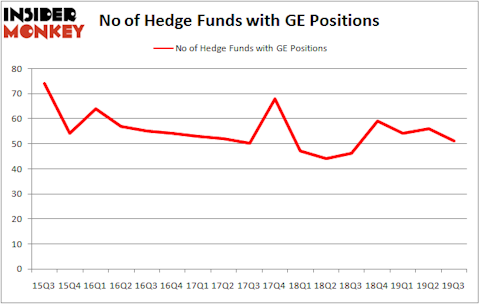Hedge funds are known to underperform the bull markets but that’s not because they are terrible at stock picking. Hedge funds underperform because their net exposure in only 40-70% and they charge exorbitant fees. No one knows what the future holds and how market participants will react to the bountiful news that floods in each day. However, hedge funds’ consensus picks on average deliver market beating returns. For example the Standard and Poor’s 500 Total Return Index returned approximately 26% (including dividend payments) through November 22nd. Conversely, hedge funds’ top 20 large-cap stock picks generated a return of nearly 35% during the same period, with the majority of these stock picks outperforming the broader market benchmark. Interestingly, an average long/short hedge fund returned only a fraction of this value due to the hedges they implemented and the large fees they charged. If you pay attention to the actual hedge fund returns versus the returns of their long stock picks, you might believe that it is a waste of time to analyze hedge funds’ purchases. We know better. That’s why we scrutinize hedge fund sentiment before we invest in a stock like General Electric Company (NYSE:GE).
General Electric Company (NYSE:GE) was in 51 hedge funds’ portfolios at the end of the third quarter of 2019. GE shareholders have witnessed a decrease in activity from the world’s largest hedge funds recently. There were 56 hedge funds in our database with GE holdings at the end of the previous quarter. Our calculations also showed that GE isn’t among the 30 most popular stocks among hedge funds (see the video below).

Video: Click the image to watch our video about the top 5 most popular hedge fund stocks.
Why do we pay any attention at all to hedge fund sentiment? Our research has shown that hedge funds’ large-cap stock picks indeed failed to beat the market between 1999 and 2016. However, we were able to identify in advance a select group of hedge fund holdings that outperformed the Russell 2000 ETFs by 40 percentage points since May 2014 (see the details here). We were also able to identify in advance a select group of hedge fund holdings that’ll significantly underperform the market. We have been tracking and sharing the list of these stocks since February 2017 and they lost 27.8% through November 21, 2019. That’s why we believe hedge fund sentiment is an extremely useful indicator that investors should pay attention to.
Let’s analyze the fresh hedge fund action regarding General Electric Company (NYSE:GE).
What have hedge funds been doing with General Electric Company (NYSE:GE)?
Heading into the fourth quarter of 2019, a total of 51 of the hedge funds tracked by Insider Monkey were long this stock, a change of -9% from the second quarter of 2019. By comparison, 46 hedge funds held shares or bullish call options in GE a year ago. So, let’s see which hedge funds were among the top holders of the stock and which hedge funds were making big moves.
More specifically, Eagle Capital Management was the largest shareholder of General Electric Company (NYSE:GE), with a stake worth $1104.4 million reported as of the end of September. Trailing Eagle Capital Management was Trian Partners, which amassed a stake valued at $574.2 million. Pzena Investment Management, Renaissance Technologies, and Southeastern Asset Management were also very fond of the stock, becoming one of the largest hedge fund holders of the company. In terms of the portfolio weights assigned to each position Key Square Capital Management allocated the biggest weight to General Electric Company (NYSE:GE), around 11.6% of its portfolio. Southeastern Asset Management is also relatively very bullish on the stock, setting aside 7.36 percent of its 13F equity portfolio to GE.
Since General Electric Company (NYSE:GE) has experienced a decline in interest from the aggregate hedge fund industry, logic holds that there was a specific group of hedgies that decided to sell off their full holdings heading into Q4. Interestingly, Rob Citrone’s Discovery Capital Management sold off the biggest stake of the “upper crust” of funds tracked by Insider Monkey, worth about $25.5 million in stock. Charles Davidson and Joseph Jacobs’s fund, Wexford Capital, also dropped its stock, about $20.5 million worth. These transactions are important to note, as aggregate hedge fund interest was cut by 5 funds heading into Q4.
Let’s also examine hedge fund activity in other stocks similar to General Electric Company (NYSE:GE). These stocks are Altria Group Inc (NYSE:MO), CME Group Inc (NASDAQ:CME), The Goldman Sachs Group, Inc. (NYSE:GS), and Chubb Limited (NYSE:CB). This group of stocks’ market caps are closest to GE’s market cap.
| Ticker | No of HFs with positions | Total Value of HF Positions (x1000) | Change in HF Position |
|---|---|---|---|
| MO | 47 | 1364557 | 9 |
| CME | 46 | 2245287 | 7 |
| GS | 72 | 8237468 | 11 |
| CB | 26 | 612921 | 1 |
| Average | 47.75 | 3115058 | 7 |
View table here if you experience formatting issues.
As you can see these stocks had an average of 47.75 hedge funds with bullish positions and the average amount invested in these stocks was $3115 million. That figure was $4455 million in GE’s case. The Goldman Sachs Group, Inc. (NYSE:GS) is the most popular stock in this table. On the other hand Chubb Limited (NYSE:CB) is the least popular one with only 26 bullish hedge fund positions. General Electric Company (NYSE:GE) is not the most popular stock in this group but hedge fund interest is still above average. Our calculations showed that top 20 most popular stocks among hedge funds returned 34.7% in 2019 through November 22nd and outperformed the S&P 500 ETF (SPY) by 8.5 percentage points. Hedge funds were also right about betting on GE as the stock returned 29.2% during the fourth quarter (through 11/22) and outperformed the market. Hedge funds were rewarded for their relative bullishness.
Disclosure: None. This article was originally published at Insider Monkey.







